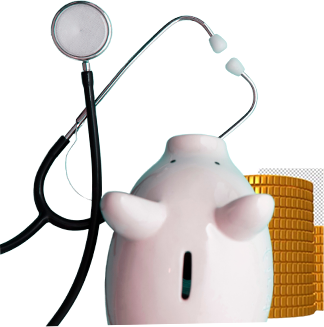PERSONALIZED DIET PLAN FROM
Plant-Based Nutritionist

Contact Us
Numerous studies have highlighted the health benefits of plant-based diets, which has increased interest in them. A plant-based nutritionist can help people change and improve their eating patterns to achieve their lifestyle and health goals.
Our plant-based nutritionists are certified experts who guide individuals toward adopting a plant-based diet for optimal health and wellness. Consulting a certified plant-based nutritionist will help you focus on nutrient-rich, minimally processed plant foods such as vegetables, fruits, whole grains, legumes, nuts, and seeds, ensuring a personalized meal plan based on your lifestyle and choices.

Why Work with a Plant-Based Nutritionist?
A plant-based nutritionist crafts personalized diet plans centered on plant-derived foods, ensuring all nutritional needs are met. They provide:
Customized Plans: Tailored to meet specific health objectives, like improving athletic performance, controlling chronic illnesses, or losing weight.
Nutritional Expertise: With a deep understanding of nutrition, they guide clients in avoiding deficiencies in key nutrients like protein, iron, and vitamin B12.
Transition Support: Techniques for easing the transition from conventional diets to plant-based diets without making people feel overburdened.
Continuous Monitoring: Regular meetings to modify plans by evolving requirements and progress.
Key Nutritional Components of a Plant-Based Diet
A well-planned plant-based diet is rich in essential nutrients. These include:
Protein: Found in nuts, tofu, lentils, and chickpeas, it promotes general health and muscle repair.
Iron: Spinach, lentils, and fortified cereals are good sources of iron. Absorption is improved when combined with foods high in vitamin C, such as citrus fruits.
Vitamin B12: Essential for the production of red blood cells; vegan diets frequently call for supplements.
Omega-3 Fatty Acids: Flaxseeds, walnuts, and chia seeds are good sources of omega-3 fatty acids, which are good for the heart and brain.
Calcium and Vitamin D: Sourced from leafy greens, fortified plant milk, and supplements when needed, this vitamin is essential for bone health.
You can make sure that your diet properly balances these nutrients to promote long-term health by consulting with a nutritionist.

Types of Plant-Based Diets
There are many different types of plant-based diets, so people can select the one that best fits their tastes, ethical values, and health objectives.
Vegan Diet
All goods originating from animals, such as dairy, eggs, and honey, are prohibited in a vegan diet. It is plant-based and often requires considerable planning to suit dietary requirements.
Lacto-Vegetarian Diet
This recipe omits meat, fish, and eggs but incorporates dairy products including milk, cheese, and yogurt.
Ovo-Vegetarian Diet
An ovo-vegetarian diet incorporates eggs but excludes dairy, meat, and fish.
Lacto-Ovo Vegetarian Diet
This diet eliminates meat and fish while combining the flexibility of dairy and eggs.
Pescatarian Diet
Pescatarian diets are mostly plant-based, although they also use shellfish and fish as sources of protein.
Flexitarian Diet
This diet offers flexibility for people making the switch to a plant-based lifestyle by emphasizing plant-based eating while permitting the occasional inclusion of animal items.
Consulting a nutritionist is essential, as each diet comes with its unique benefits and considerations.
Importance of Plant-Based Nutrition
Plant-based diets play a crucial role in promoting your overall well-being as well as preventing and reversing certain chronic health conditions. A well-planned, nutrient-rich, plant-based diet can offer significant health benefits and contribute to environmental sustainability.
Improved Heart Health
Eating a diet based on plants that are full of fiber, antioxidants, and healthy fats can decrease cholesterol, lower blood pressure, and enhance heart health in general.
Weight Management
Plant-based meals’ high fiber content helps you in weight management by preventing overeating and keeping you satiated for longer.
Reduced Risk of Chronic Diseases
Plant-based diets are linked to reduced risks of metabolic syndrome, type 2 diabetes, and certain cancers, thanks to their rich supply of phytonutrients and antioxidants.
Enhanced Digestion
A balanced gut microbiome and healthy digestion are supported by the fiber found in fruits, vegetables, and whole grains.
Positive Environmental Impact
Living a plant-based lifestyle is a sustainable decision for the environment since it lowers greenhouse gas emissions, conserves water, and reduces deforestation.


Benefits of a Vegan Diet
Benefits of a vegan or a plant-based diet include:
Rich in Nutrients: Provides ample vitamins, minerals, and antioxidants.
Heart Health: Reduces bad cholesterol levels and supports cardiovascular function.
Blood Sugar Control: It helps control blood sugar, which makes it useful for type 2 diabetes management.
Improved Digestion: Plant-based diets high in fiber boost gut health and aid in improved digestion.
Weight Management: Foods rich in fiber and low in calories can help you in weight management.
Protect Ecosystem: By choosing plant-based foods, we help preserve natural habitats.
Enhanced Skin Health: Intake of fruits, vegetables, and healthy fats can lead to clearer, more radiant skin.
Better Hormonal Balance: Avoiding dairy and animal products can help reduce the risk of hormone-related disorders.
Common Plant-Based Nutrition Plans
Here are the common plant-based nutrition plans that vegetarians have:
Weight Loss Plans: Calorie restriction through nutrient-dense foods like whole grains and legumes is emphasized in weight loss strategies.
Athletic Performance Plans: Foods high in protein and low in inflammation should be prioritized for recovery.
Pregnancy Plans: Balanced to meet increased demands for folate, calcium, and iron.
General Wellness Plans: Designed for optimal energy and long-term health.
Recommended Foods for a Balanced Plant-Based Diet
The recommended food for plant-based dieters is:
Whole Grains: Quinoa, brown rice, oats, and barley.
Legumes: Lentils, chickpeas, black beans, and peas.
Nuts and Seeds: Almonds, walnuts, chia seeds, and flaxseeds.
Fruits: Berries, bananas, apples, and oranges.
Vegetables: Spinach, kale, broccoli, and sweet potatoes.
Plant-Based Proteins: Tofu, tempeh, seitan, and edamame.
Healthy Fats: Avocados, olive oil, coconut oil, and nut butter.

Why Choose QUA Nutrition for a Plant-Based Diet?
We are well known for our expertise in plant-based nutrition and our all-encompassing approach to dietary transformation. Customers benefit from the guidance of seasoned dietitians who specialize in plant-based diets and who design plans tailored to their goals and tastes. Each plan is grounded in the latest nutritional research, ensuring a thorough and effective path to improved health. Beyond customized meal plans, QUA Nutrition provides continuous support through regular consultations, helping clients track their progress and refine their approach. Switching to a plant-based lifestyle becomes both enjoyable and seamless with our extensive resources, including tailored meal plans, creative recipes, and comprehensive nutritional guidance. Making the switch to a plant-based diet is a step toward sustainability and improved health, not just a lifestyle decision. With expert guidance from QUA Nutrition, you can ensure your diet is both nourishing and aligned with your personal goals. Contact QUA Nutrition to consult your plant based nutritionist in India!
FAQ
Q: Can I get enough protein on a plant-based diet?
A: Of course. Include high-protein foods such as quinoa, lentils, beans, and tofu.
Q: Is a plant-based diet suitable for children?
Yes, provided that enough planning is done to guarantee that they get enough nutrients for growth and development.
Q: How do I avoid deficiencies in a vegan diet?
Prioritize eating a variety of foods and think about taking supplements for omega-3 fatty acids, vitamin D, and vitamin B12.
Q: Are plant-based diets expensive?
Not always. Budget-friendly and nutrient-dense staples include rice, beans, and seasonal vegetables.
Q: Can a plant-based diet help with weight loss?
Yes, the high fiber content encourages fullness, which lowers caloric intake in general.


